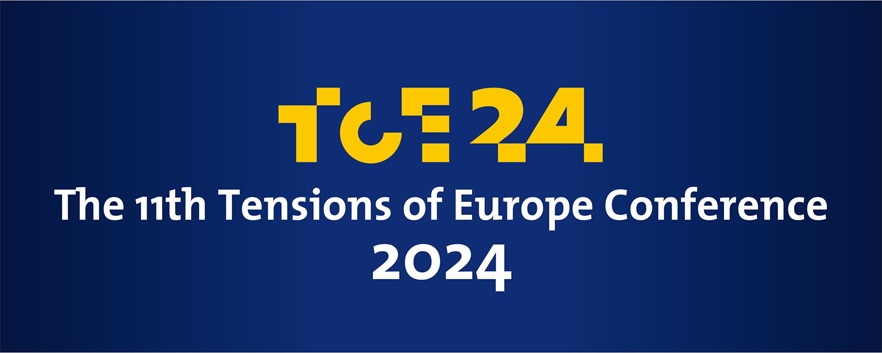Conferences
Symposium Bartoszewski Promemoria 5
"Cultures of democracy"
13. November 2025, 14-20, location: Logenhaus, Logensaal, Europa-Universität Viadrina Frankfurt (Oder) and Livestream

Annual symposium where German and Polish academics and diplomats discuss the past and present of German-Polish relations.
International Interdsciplinary Conference „Henryk Bereska – ein Mann im Dazwischen / Człowieka bycie pomiędzy“ (Henryk Bereska – A Man in Between)

Date: October 15–17, 2025
Venue: Europa-Universität Viadrina Frankfurt (Oder) (Germany) and Collegium Polonicum Słubice (Poland)
Conference languages: German, Polish (English submissions may also be admitted); presentations will not be simultaneously interpreted.
Conference fees: The organizers plan to secure external funding for the conference and publication. Participants will be responsible for their travel, accommodation, and meals.
Conference website: https://www.europa-uni.de/kds-Bereska
Call for papers:
Deadline: May 15, 2025
CFP in German
CPF in Polish
Abstract submission form https://forms.europa-uni.de/form/provide/1958/
Henryk Bereska remains an underappreciated East German translator and poet, a critical thinker, and a pioneer in shaping intellectual debate on Polish literature in Germany. Despite his extensive body of work—recognized with the Transatlantyk Prize awarded by the Polish Book Institute—his contributions as both a translator and a writer are still not widely known and have yet to be systematically researched.
The year 2025 marks the 20th anniversary of Bereska’s passing, and in 2026, the centennial of his birth will be commemorated—an ideal occasion to reflect on his extensive body of work within the framework of an academic conference. The event will examine the relevance of his legacy as a “silent mediator in the dialogue between Eastern and Western Europe,” his role in Polish-German intellectual exchange, and his significance for contemporary scholarly research.
Following the conference, selected contributions will be published in a conference volume edited by Prof. Anna Małgorzewicz, Dr. Małgorzata Szajbel-Keck, and Dr. Ilona Czechowska as part of the Studies on Multiculturalism series at the University of Wrocław, to be published by Harrassowitz Verlag (in print and open access). Submissions (in Polish or German) will be selected through a double-blind peer review process.
The conference is organized in cooperation between the Chair of Translation Studies and Glottodidactics at the Institute of German Studies at the University of Wrocław, the Karl Dedecius Foundation, the Viadrina Center of Polish and Ukrainian Studies (both at Europa-Universität Viadrina), the Karl Dedecius Archive at Collegium Polonicum, and the Chair of Cultural and Media Didactics at the Institute of Applied Linguistics at Adam Mickiewicz University in Poznań.
The conference is part of the project "Henryk Bereska – Ein Mann im Dazwischen." (https://www.europa-uni.de/kds-Bereska)



![]()



![]()
- Lehrstuhl für Translatorik und Glottodidaktik am Institut für Germanistik der Universität Wrocław
- Karl Dedecius Stiftung an der Europa-Universität Viadrina Frankfurt (Oder)
- Viadrina Center of Polish and Ukrainian Studies an der Europa-Universität Viadrina Frankfurt (Oder)
- Karl Dedecius Archiv am Collegium Polonicum
- Lehrstuhl für Kultur- und Mediendidaktik am Institut für Angewandte Linguistik der Adam-Mickiewicz-Universität Poznań
Between Hope and Reality. Modernization and Transformation in Central and Eastern Europe. Annual conference of the Viadrina Center of Polish and Ukrainian Studies
May 22 – 23, 2025, European University Viadrina, Frankfurt (Oder), Germany
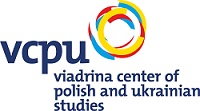

The VCPU Annual Conference 2025 addresses current challenges in Polish and Ukrainian studies and is dedicated to the research project “Mod-Block-DDR.” Both areas are framed by the concepts of “modernization” and “transformation.” The presentation of research findings on socialist modernization in the German Democratic Republic and the People's Republic of Poland, including their achievements and obstacles, will serve as a stimulus for discussing the political, economic, social, and cultural transformations in Central and Eastern Europe. All researchers from disciplines such as (but not limited to) economic history, the history of science, or sociology are invited to participate. At the Viadrina Center of Polish and Ukrainian Studies, we aim to place special focus on Ukraine as a new sphere of modernization processes (e.g. migration, the opening to western Europe, and integration with the European Union) and socio-economic transformations initiated by the outbreak of Russia‘s War of Aggression. These focal points highlight the diverse theoretical and methodological potential of the Viadrina Center of Polish and Ukrainian Studies: interdisciplinarity that integrates historical, political, economic, and cultural studies and fosters transnational cooperation between scholars.
Sponsors:
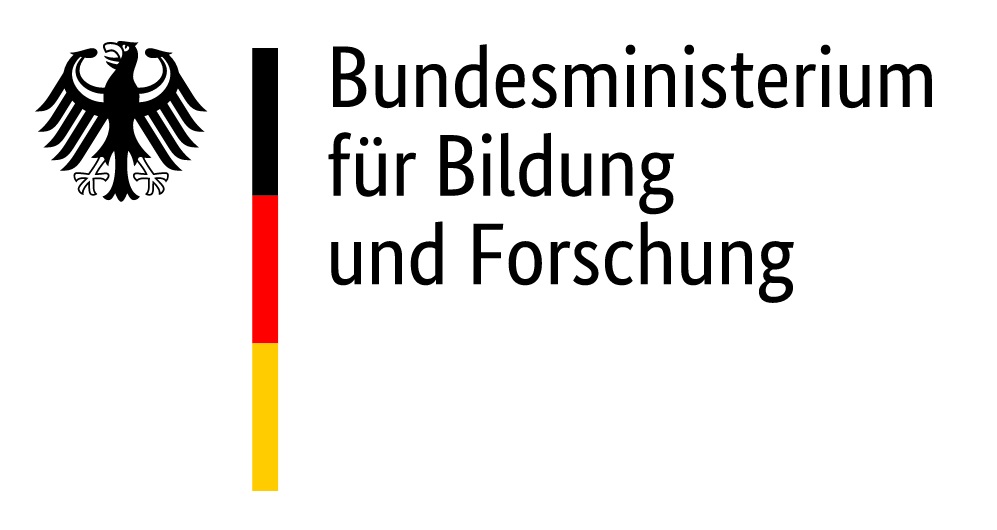
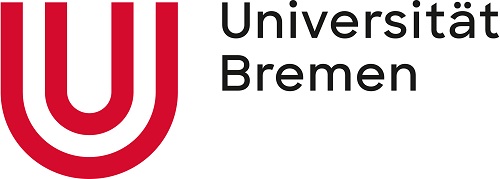
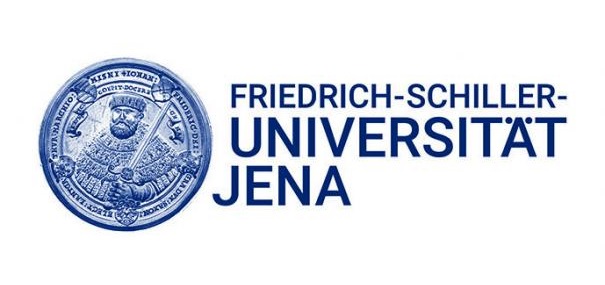
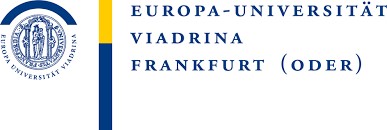
Poland and Its Neighbours in the 20th and 21st Century, 1918-2022. Convergences and Divergences
18th October 2024, Grosse Scharrnstrasse 23 a, Frankfurt (Oder), Room 105 (Wolff-Saal)
Russia’s war against Ukraine has brought Central and Eastern Europe into focus. Since February 2022, there has been a wave of solidarity with Ukraine in Poland – especially in the supply, transport or accommodation of Ukrainian refugees. Many Poles and Ukrainians see themselves united in resolutely opposing the Russian invasion. But these ostentatious convergences are also countered by structural divergences in economic development since 1989.
We want to explore such convergencies and divergencies between Poland and its neighbours since 1918. On the one hand, the region is united by shared experiences of fundamental economic, cultural and demographic transformations in the last century. On the other hand, political life in Poland, Ukraine, but also in the Baltic states, the former GDR and the Post-Yugoslav states is determined by divergent narratives. The antagonistic interpretation of Ukrainian nationalists in World War II in Poland and Ukraine is just one example. Can the war and Polish solidarity with Ukraine be a kind of catalyst for dialogue, for coming to terms with these divergences, or are antagonistic attitudes simply suppressed? What does this war mean for cultural studies? Will the eastern part of the continent become more important? Does this mean that national historical narratives are experiencing a rise? Should Europeanization processes be examined more from a Polish, Ukrainian, Lithuanian, Hungarian, Croatian or Serbian perspective?
Programm (PDF):
09:15 Welcome Coffee
09:30 Introduction
09:35 Panel I: MANYFOLD TRANSFORMATIONS (Chair: Tomasz Rawski)
Claudia Foltyn, Augsburg
Poland’s and Its Neighbours’ Quest for Energy Security.
The Case Study of Fracking as an Exemplary Lesson in Value Divergence
Bartosz Matyja, Warsaw
Domesticating Foreign Trade
Economic Narratives and Societal Change in Poland, 1956-1976
10:50 Short Coffee Break
11:00 Panel II: CHALLENGED DEMOCRACY (Chair: Bartosz Matyja)
Anton Liavitski, St. Gallen
Democracy and Its Discontents
Revisiting Post-Communism’s Great Divide
Tomasz Rawski, Warsaw
Visions of Future Russia among Russian War Migrants
12:15 Lunch Break
13:15 Panel III: PROBLEMATIC RELATIONS (Chair: Stephan Rindlisbacher)
Alexandra Pulvermacher, Klagenfurt
German-Soviet Collaboration in the Persecution of the Polish Resistance, September 1939 – June 1941
Magdalena Gibiec, Wrocław
Radicalisation to Violence
Understanding Polish-Ukrainian Relations in Interwar Period through the Prism of Resentment
14:30 Coffee Break
15:00 Panel IV: COMPETING COMMEMORATIONS (Chair: Falk Flade)
Mark Keck-Szajbel, Frankfurt (Oder)
Vergangenheitsbewältigung and the Never-Ending Debate on Reparations
Veronika Warzycha, Berlin
The Socio-Spatial Memory of the Polish-German Border
16:15 Short Coffee Break
16:30 Concluding discussion
17:00 Closure of the Workshop
For the panels, all guests are welcome, please, contact Stephan Rindlisbacher (rindlisbacher@europa-uni.de)
Supported by Deutsch-Polnische Wissenschaftsstiftung / Polsko Niemiecka Fundacja na rzecz Nauki
Transformations. Fundamental Change and Technology. XI. Tensions of Europe Conference, 19 to 21 September 2024
We live in a world of constant change. There are periods, however, of accelerated change in the political, economic, social or technological sphere. Usually, these spheres are closely interrelated and entangled. If this change is of fundamental character, scientists usually speak of ´transformations´. Common examples are the political and economic system changes, i.e. transformations, in Latin America, Southern Europe or Central and Eastern Europe (CEE) in the past decades.
The aim of the conference is to shed light on technological, but also political, societal and environmental sides of these transformations in Europe and other regions in past and present.
Economic Shocks, Resilience and Institutions. 3rd Prof. Jan Winiecki Scientific Conference, Frankfurt (Oder), May 23rd-24th
European University Viadrina, and the Association of Polish Economist (TEP) invite submissions to a scientific conference themed
“ECONOMIC SHOCKS, RESILIENCE AND INSTITUTIONS”.
This is the third conference (the first international), which aims to commemorate Prof. Jan Winiecki and promote the exchange of ideas and research findings on societies’ coping strategies and resilience with respect to economic shocks and transformation processes (in the broadest sense) and the mitigating role of institutions.
Invited are contributions from all fields of economics as well as from interdisciplinary research collaborations between related fields of social science and economic history.
The organizers particularly encourage and welcome contributions from PhD students and postdocs at their early stages of careers.
War and the Perspective of Historians. How Living During Catastrophe Shapes Our Understanding of the Past, 16. April 2024
Hybrid Workshop
Chaired by Dr. Denys Shatalov, Kryvyi Rih.
Organisers:
Centre Advanced Study Sofia
Ukrainian Institute for Holocaust Studies Tkuma, Dnipro
Viadrina Center of Polish and Ukrainian Studies, European University Viadrina Frankfurt (Oder)




